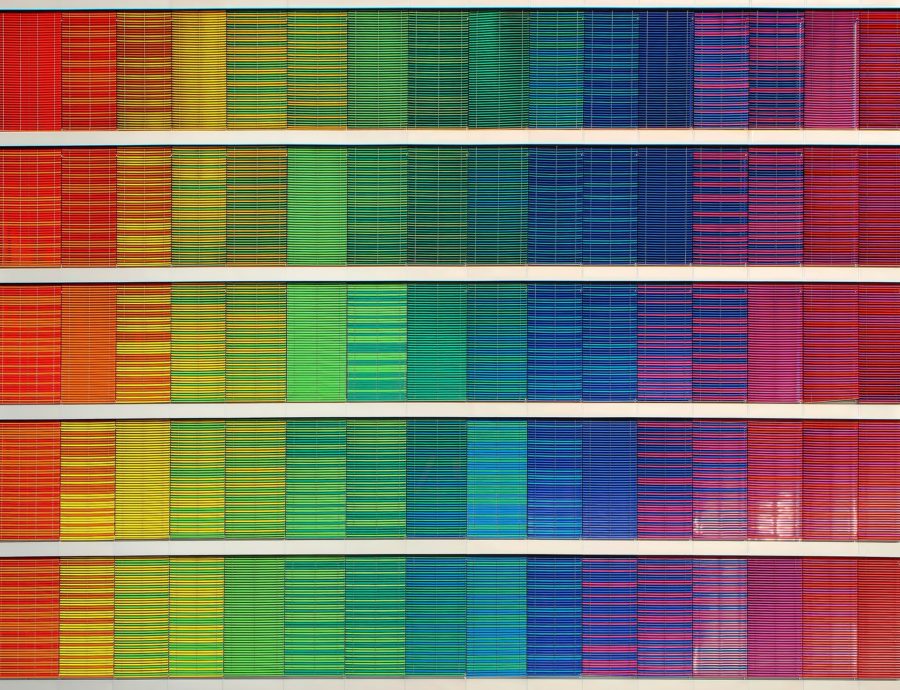
Why Repeatability Is A Powerful Feature To Build Wealth
The recent debacle on the collapse of Terra clearly brings to bear the risk of new asset classes despite all the fanfare and stunning returns. Some adventurous folks probably made a killing before the meltdown but what is the likelihood of being able to repeat the feat before loosing it all?
Terra was created as a stablecoin – a category of cryptocurrencies that is linked to a fiat currency, in this case the US dollar to provide more stability. Ironically, in the end a new asset class succumbed to 1 of the most dreaded old-economy problems: lost of investors’ confidence. This caused a combine US$300 billion across all cryptocurrencies in the week of Terra’s death spiral.
I started dabbling in cryptocurrencies a year ago at the height of their popularity, more out of curiosity and to have some ‘skin in the game’ to learn more about them. As interest and value started to wane, so did my focus and thankfully I had no exposure to Terra. Having had a year of experience, investing in cryptocurrency is definitely not for the faint-hearted or weak-minded.
Luckily our conservative strategy of taking small profits along the way allowed us to earn enough to remodel a new bathroom. Since late 2021 however, the portfolio started to shrink, reaching its current value of ~3% gain. This whole episode proves to me that cryptocurrency is not a good wealth-building tool yet…perhaps never will be. Why?

Practise Makes Perfect
To build wealth, repeatability in execution is a most critical feature. The ability to repeat an investment strategy over time and many economic cycles is how wealth can be accumulated. Such repeatability is what contributes to and magnifies one’s effort over time. While it is possible to make a 1-off profit on an investment or speculative trade, if it cannot be repeated with certain degree of certainty and regularity, then its power as a wealth tool is limited.
Therein lies the appeal of proven wealth tools such as real estate, stocks, some categories of collectibles as well as the founding of businesses. While I have reservation about starting a business, it has been the path to wealth for many successful entrepreneurs so is a proven wealth tool, just that it is not suited for me.
Repetition is the most proven way to build expertise, get experience, increase skills and gain confidence…all of which in turn contribute to higher success rate. Once 1-2 methods have been mastered, the rest is simply to keep repeating these methods to allow their respective effect to work and compound over time.
I fear not the man who has practiced 10,000 kicks once, but I fear the man who has practiced 1 kick 10,000 times. ~ Bruce Lee
Repeatability
Amongst the few streams of passive income I deploy, real estate is my favourite because of its repeatability and dependability as a wealth-building tool. Let’s explore the reasons that earns it this distinction.
- Rental Income
The most straight forward means of income from owning an investment property is collecting rental. Rental is collected either weekly, fortnightly or monthly depending on the practice in a country or location. Such regularity and repeatability in cash flow is a big plus to commit to investment frequency. Rental collection allows one to start investing using the Dollar Cost Averaging or Value Averaging strategies. The more frequent a cycle can be repeated, the greater its effect on the velocity of money and thus wealth accumulation.

- Appreciation
The housing market undergoes cycles of spikes and dips, allowing one to capture profit during peaks and presenting buy opportunities during troughs. An example of market peak is when demand is high and frantic buyers overbid asking prices like in the past 2 years, allowing investors to reap good profits. Down market is when supply far outweighs demand as in the global financial crisis in 2008, which represents the best moment to buy into investment property.
This repetition of down cycle following every market high, coupled with inflationary effect, leads to appreciation of a property over time. In addition to property prices being buoyed by growing economy, positively affecting market sentiment and buyers’ confidence, prices can also be affected by regulatory policies such as low interest or increase in money supply eg. printing of money during quantitive easing.
All of us can recall how affordable housing and land were when we were younger. Our grandparents paid only a fraction of what our parents paid. We, in turn, paid more for our home compared to the prices our parents paid. Such appreciation augurs well for those who can locate the right property and get investment funding to repeat this winning formula, again and again.
- Home equity
Home equity is the difference between the value of the home and the amount of mortgage. If a home is worth $500,000 on the market while the remaining mortgage is $300,000, then home equity is $200,000.
Most mortgages require a proportion of the principle to be repaid with the interest monthly, so coupled with the appreciation of the property over time, home equity tends to increase over time. This can be repeated for subsequent property bought.
Do note that home equity can become negative too, like during the sub-prime mortgage crisis. When this happens, banks and lenders can request borrowers to top-up the negative equity so it is important to ensure sufficient affordability when buying investment property. The ability to top-up the negative equity if required by the lender allows one to ride the trough to the next market peak when equity should turn positive again.
- Value Increase Through Rebuilding or Renovation
If one has the inclination and interest, buying older property to rebuild and renovate is a good way to increase its value and sell for profit. One will need to have sufficient capital to undertake the rebuilding and renovation as banks increasingly do not offer renovation loans to limit credit exposure. This is definitely a proven and repeatable way to build wealth.
- Conversion To Usage of Higher Demand
Most cities are experiencing shortage of residential property while demand for offices, shops, schools and even churches dwindle. This trend is exacerbated by the Covid pandemic where work-from-home becomes more widely accepted and online shopping more prevalent. Entrepreneurial investors can do well to research the possibility of applying to the authority change of usage and then doing the necessary conversion into residential property.

A friend made his millions by doing just that – buying over old offices and hotels in good location and converting them into 50-60 sqm apartments for starters. As his plan plugs a gap in the market, he was able to secure approval from the town councils for such conversion. This friend has been doing this same trick the past 10 years, becoming a millionaire in the process.
- Splitting Bigger Property or Increasing Plot Ratio
Another variation is to buy bigger houses and splitting them into smaller units, which command higher per square metre prices. Entire 3-4 storey houses can be split horizontally into 6-8 smaller apartments, which are more sought after due to better affordability.
Standalone older bungalows on big plot of land that can be rebuilt into higher plot ratio to yield more unit is another way. This is the exact method of en bloc sale used by property developers in Singapore where older developments are demolished and redeveloped into newer units with higher density. While such undertaking is not suited for everyone, it is a repeatable and proven wealth building tool.
- Tapping Into Leverage
The biggest advantage that real estate has over many other asset classes is its ability to tap into leverage, ie using other people’s money to generate profit. Mortgages offer one of the lowest interest rates compared to other types of loans, reducing cost of capital. Repayment period for mortgages is usually over a longer period of time given the quantum and durability of underlying asset, further enhancing the attractiveness of such borrowing.
Finding The Repeatable Wealth Method
Starting from the first investment property and tapping into leverage to buy subsequent other property has been my path to financial freedom and early retirement.
While real estate is my main modus operandi in building wealth, it is not everyone’s cuppa tea due to time demand, different interest or funds limitation. Only you know which wealth tool suits your personal circumstance by trying out several. I have given example of the repeatability of real estate because of my personal preference and bias, but it can also be from stocks or real assets like collectibles for which you have expert knowledge and personal interest in.

To to able to keep repeating something, it is best to find a method that is pleasurable or for which you have interest in. For in the end, the journey should be just as enjoyable as the destination. In the midst of building wealth, let us not forget to live and enjoy life itself.
Reap the power of repeatability,
Savvy Maverick
(Main image: Ricardo Gomez Angel, Unsplash)
Disclaimer: The views expressed here are drawn from my own experience and do not constitute financial advise in any way whatsoever. Nothing published here constitutes an investment recommendation, nor should any data or content be relied upon for any investment activities. It is strongly recommended that independent and thorough research is undertaken before making any financial decisions, including consulting a qualified professional.
